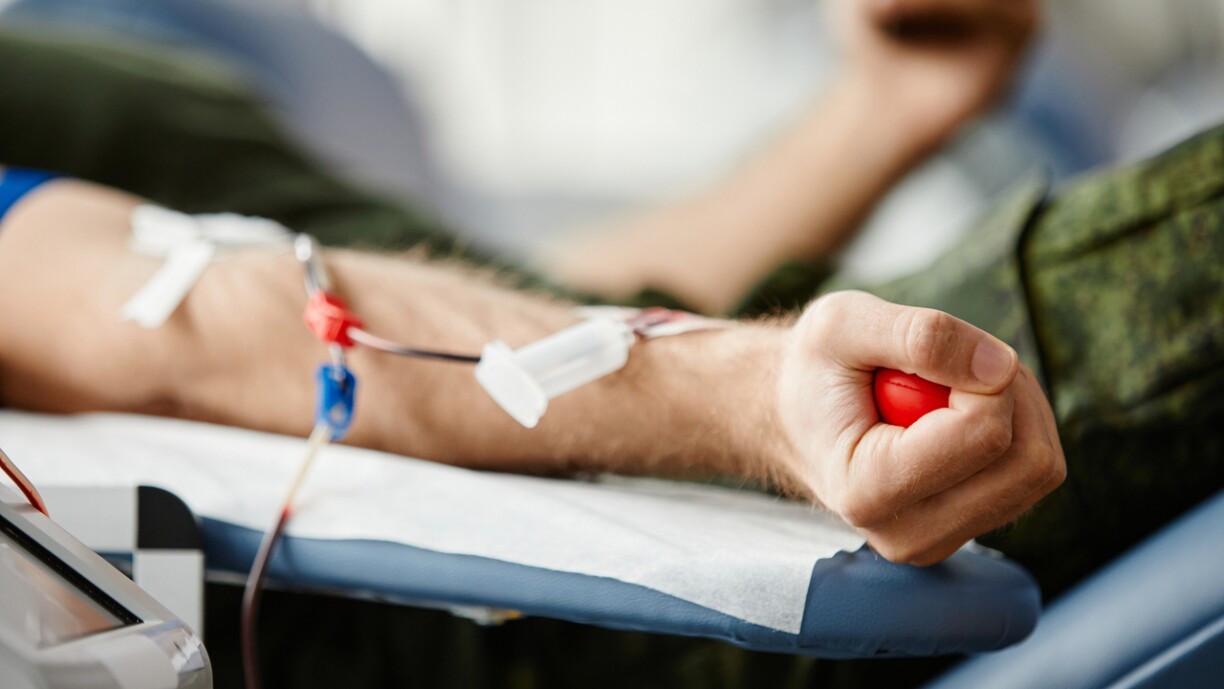
We spoke with Michel Simonis, the director of the Luxembourgish Red Cross. He starts the conversation by defining those individuals concerned: “We’re talking about so-called MSM, men who have sexual relationships with other men. These are not necessarily homosexual men and we are also not talking about homosexual women. We are only talking about sex between men, which is considered a ‘high-risk behaviour’ when it comes to donating blood.”
What exactly is the risk, and why would there be a higher risk with men who sleep with other men? He cites the concern for hepatatis but also for HIV.
“When it comes to HIV, we have statistical evidence. The last report on this was from 2001, and it said there were as many new infections in the heterosexual population as there are with MSM. However the base population is much smaller, so we can deduce that there is a higher risk.”
In the past, in Luxembourg, men who slept with other men were excluded from donating blood for their whole life. This has changed and it is now possible to donate plasma, at any time. However, for blood, it is only possible after being abstinent for a year.
Plasma donations can be frozen, which allows for greater analysis: when a donor returns for a follow-up donation, after a few months, they are tested again for viral diseases which are not immediately detectable. If their new test is clear, the previous donation is safe for use and the risk of viral disease is further eliminated. Each time a donor returns, their donation is frozen and tested upon return. This makes the blood product much safer overall, according to Simonis.
However, blood cannot be frozen - as red blood cells are only usable for a short period of time.
Any potential donor must fill out a survey, with one of the questions addressing sexual relations with men over the previous 12 months.
Once the blood is donated, it is filtered and cleaned. “A slew of procedures are used to process the blood and of course it is analysed. One filter is followed by another to eliminate the risk of any diseases in a blood product.”
But what if a potential donor lies on the survey?
“For the Luxembourgish Red Cross, it is important that no material gain is given to donate blood, so there is no material gain to lying. In Germany, for example, you get paid to donate plasma - but in Luxembourg we want it to remain a benevolent act.”
Sex between men is not the only ‘high-risk behaviour’ to consider from potential blood donors. Having many sexual partners is also considered high-risk. However, statistics only show so much. “We can determine that half of the men who get infected with HIV are gay and the other ones are straight. We do not know more,” says Simonis.
“For years we have missed out on examining the cases of HIV we are made aware of. Details like how the person got infected, whether it was with a known or a new partner, or if the person even knows how they were infected.” He deplores the lack of data on the subject, as it prevents the Red Cross from outlining any other criteria related to infection.
All donated blood is sent to Germany for PCR analysis. The Luxembourgish Red Cross has a partnership with the German Red Cross, with the latter providing further analysis that cannot be completed in Luxembourg. The German-based PCR tests can analyse blood for a host of infections. The results are received by the Red Cross in Luxembourg the following day. “Therefore, the blood is tested as well as it can be in this short period of time.”
A small risk remains, as some bacterial or viral infections may not reach a detectable level in the blood.
“Therefore, we have added a second process. The blood is cleaned in our laboratories. There are technologies that allow us to clean the blood.”
All of these measures cannot lead to a 100% safety guarantee and the Red Cross would bear responsibility for any issues. In most other countries, the government holds responsibility for blood donations.
“In Luxembourg, we’re dealing with a legal vacuum in this instance. We are trying to see how the State could take on this responsibility. But we are hesitant to loosen blood donation criteria as, should something go wrong - even once - the Red Cross holds all the responsibility.”